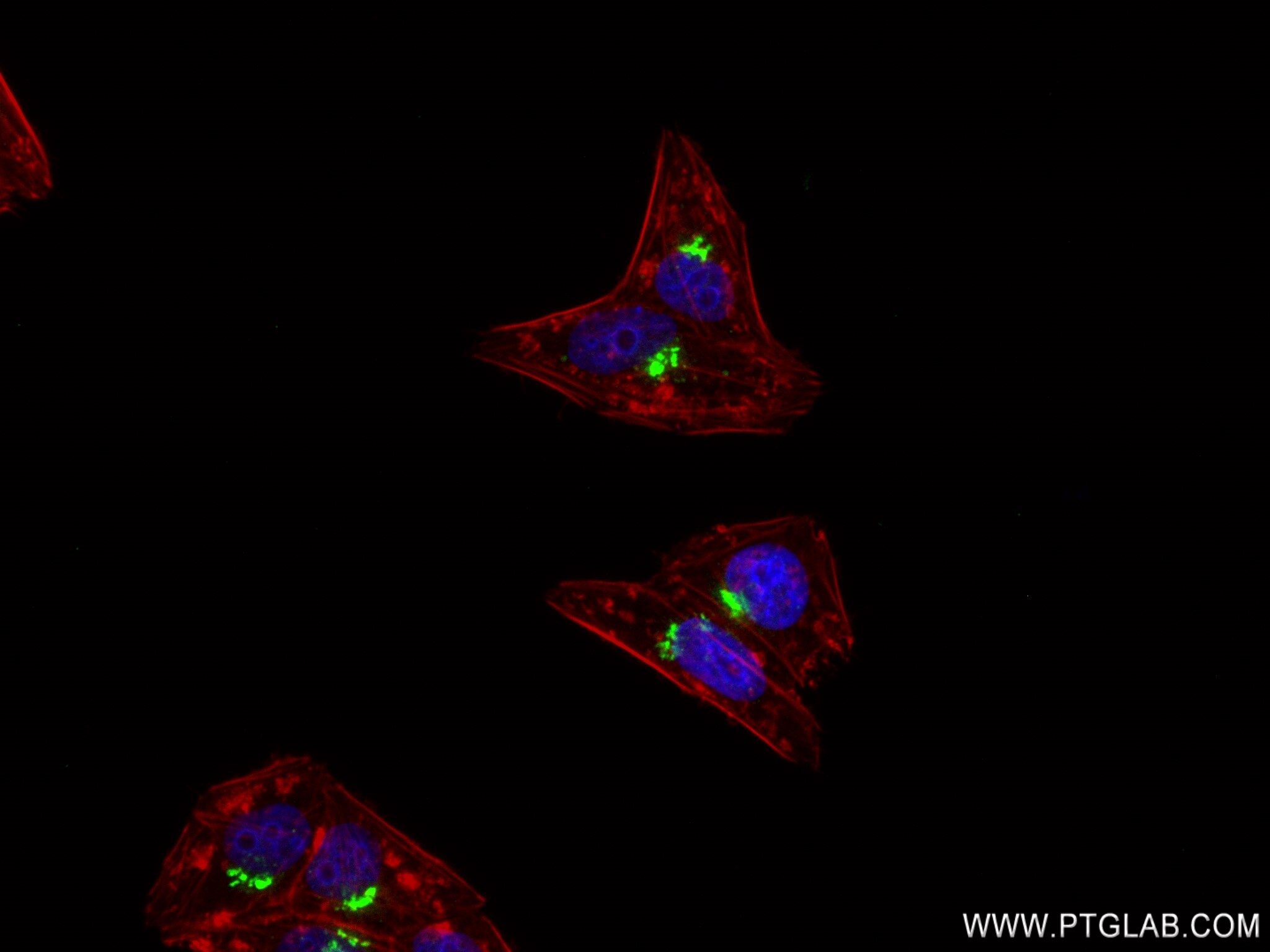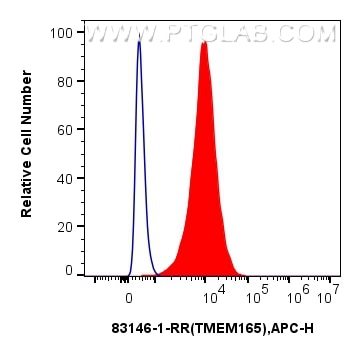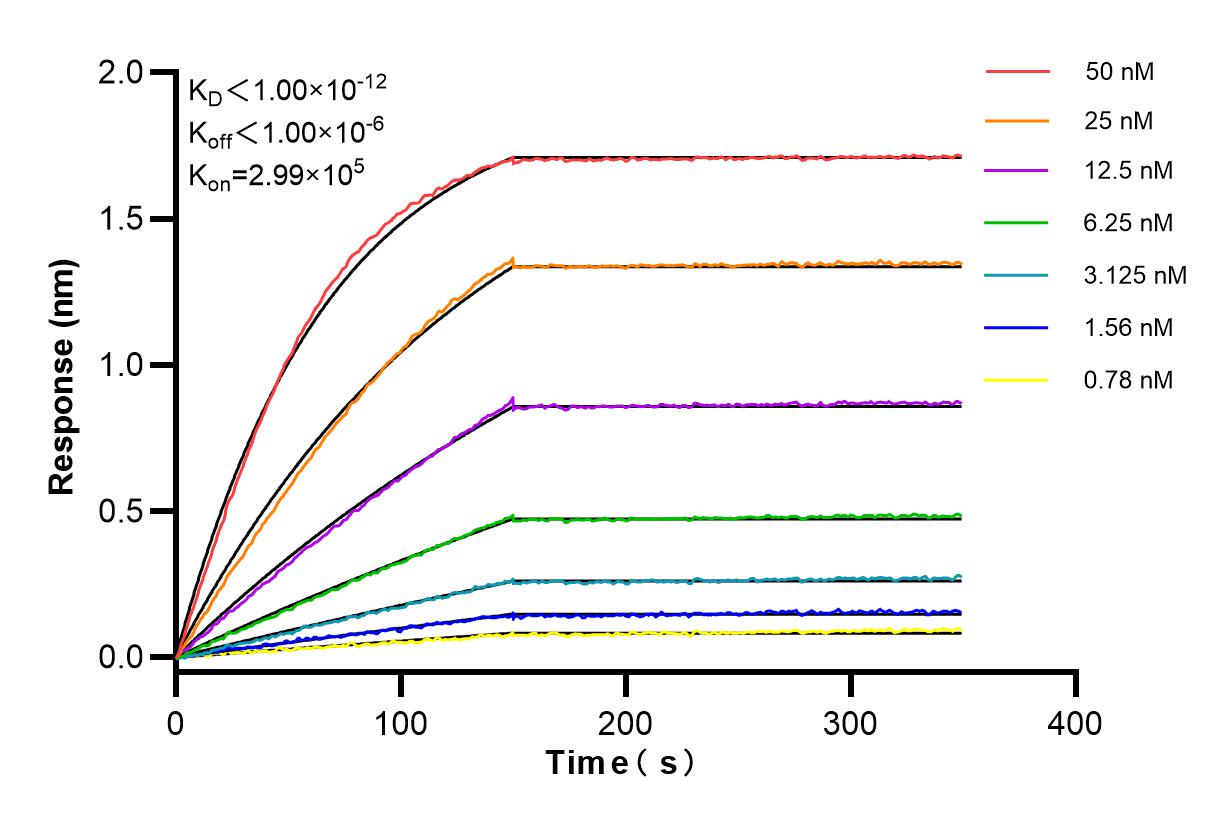Anticorps Recombinant de lapin anti-TMEM165
TMEM165 Recombinant Antibody for IF/ICC, FC (Intra), ELISA
Hôte / Isotype
Lapin / IgG
Réactivité testée
Humain
Applications
IF/ICC, FC (Intra), ELISA
Conjugaison
Non conjugué
CloneNo.
230517B1
N° de cat : 83146-1-RR
Synonymes
Galerie de données de validation
Applications testées
| Résultats positifs en IF/ICC | cellules HepG2, |
| Résultats positifs en FC (Intra) | cellules HepG2, |
Dilution recommandée
| Application | Dilution |
|---|---|
| Immunofluorescence (IF)/ICC | IF/ICC : 1:200-1:800 |
| Flow Cytometry (FC) (INTRA) | FC (INTRA) : 0.25 ug per 10^6 cells in a 100 µl suspension |
| It is recommended that this reagent should be titrated in each testing system to obtain optimal results. | |
| Sample-dependent, check data in validation data gallery | |
Informations sur le produit
83146-1-RR cible TMEM165 dans les applications de IF/ICC, FC (Intra), ELISA et montre une réactivité avec des échantillons Humain
| Réactivité | Humain |
| Hôte / Isotype | Lapin / IgG |
| Clonalité | Recombinant |
| Type | Anticorps |
| Immunogène | TMEM165 Protéine recombinante Ag14362 |
| Nom complet | transmembrane protein 165 |
| Masse moléculaire calculée | 324 aa, 35 kDa |
| Numéro d’acquisition GenBank | BC003545 |
| Symbole du gène | TMEM165 |
| Identification du gène (NCBI) | 55858 |
| Conjugaison | Non conjugué |
| Forme | Liquide |
| Méthode de purification | Purification par protéine A |
| Tampon de stockage | PBS with 0.02% sodium azide and 50% glycerol |
| Conditions de stockage | Stocker à -20°C. Stable pendant un an après l'expédition. L'aliquotage n'est pas nécessaire pour le stockage à -20oC Les 20ul contiennent 0,1% de BSA. |
Informations générales
Thiopurine methyltransferase or thiopurine S-methyltransferase (TPMT), a member of methyltransferase superfamily, is an enzyme involved in the normal metabolic inactivation of thiopurine drugs such as azathioprine, 6-mercaptopurine and 6-thioguanine. These drugs are generally used as immunosupressants or cytotoxic drugs and are prescribed for a variety of clinical conditions including leukemia, autoimmune disease and organ transplantation. Defects in the TPMT gene leads to decreased methylation and decreased inactivation of 6MP leading to enhanced bone marrow toxicity which may cause myelosuppression, anemia, bleeding tendency, leukopenia and infection.
Protocole
| Product Specific Protocols | |
|---|---|
| IF protocol for TMEM165 antibody 83146-1-RR | Download protocol |
| Standard Protocols | |
|---|---|
| Click here to view our Standard Protocols |





